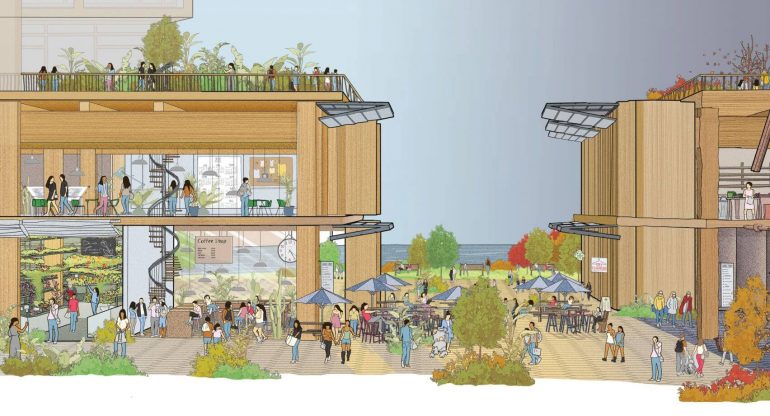Sidewalk Labs is still mum on how it plans to collect data but finally revealed more details for Quayside, the proposed smart city that will be located at Toronto’s waterfront.
According to a November 29 Globe and Mail article, the Alphabet Inc.-owned Google affiliate said site plans will be announced publicly at its public roundtable on December 8th, 2018.
During a press briefing on Thursday, Sidewalk Labs says it plans to create nearly 4,000 jobs and wants to ensure there will be 20 percent affordable housing.
The site at downtown Toronto will have about a dozen buildings that will range from three to 30 stories tall. Residents will be sharing those spaces between office, retail and other services.
Sidewalk Labs said most of these buildings will be made of wood and all buildings will be 3.3 million square feet in total with 400,000 square feet of open spaces.
These open spaces will be incorporated in what Sidewalk Labs likes to call “stoas.”
Sidewalk Labs says the city will be able to host about 5,000 residents and 55 percent of the buildings will be residential. It told reporters that it will be the residential landlord but did not go further into detail on how that would work.
Sidewalk Labs also did not reveal to reporters anything more about how it plans to collect user data, something that it has been criticized about for months. It said it would collect data from sensors while residents are in the community, and that could come from traffic signals or garbage bins.
But how much will be collected is still unknown and Sidewalk Labs was very quiet about it at Thursday’s meeting.
Sidewalk Labs is working with Waterfront Toronto on the site; that plan was solidified in October 2017.
The Waterfront Toronto board of directors later approved a Plan Development Agreement (PDA) with Sidewalk Labs in July 2018.
As a result of the 58-page PDA, Sidewalk Labs said that it would invest approximately $40 million USD (roughly $52.87 million CAD) to develop the MIDP.
Of that total figure, Sidewalk Labs set aside $2,664,000 USD (approximately $3.52 million CAD) to examine legal, regulatory and policy issues, including data privacy and digital governance.
Source: The Globe and Mail


